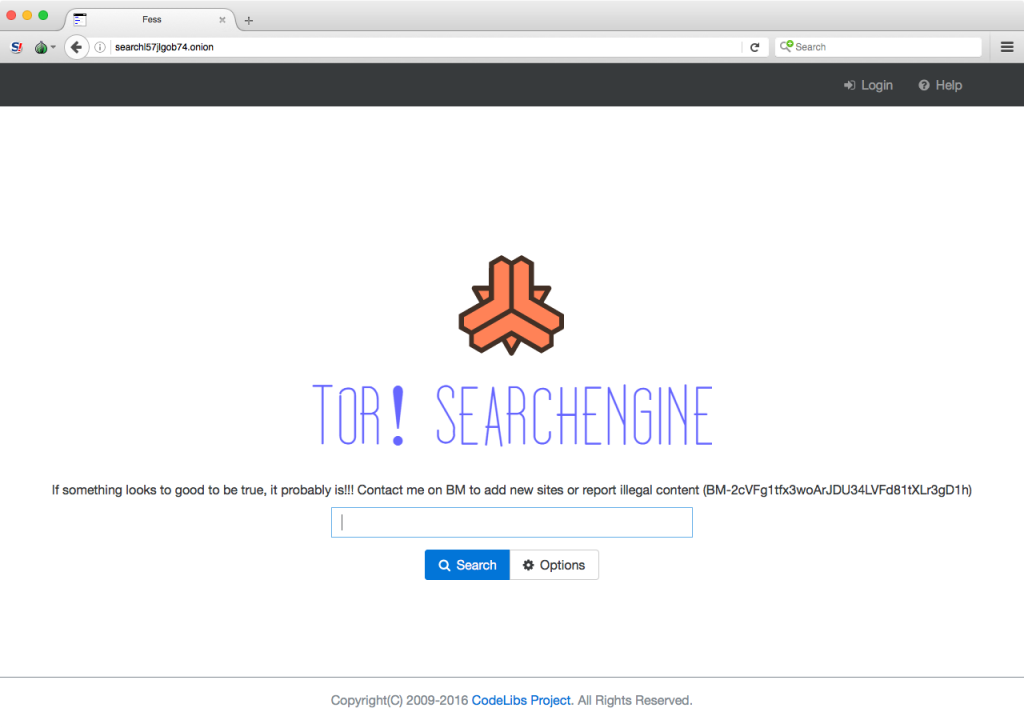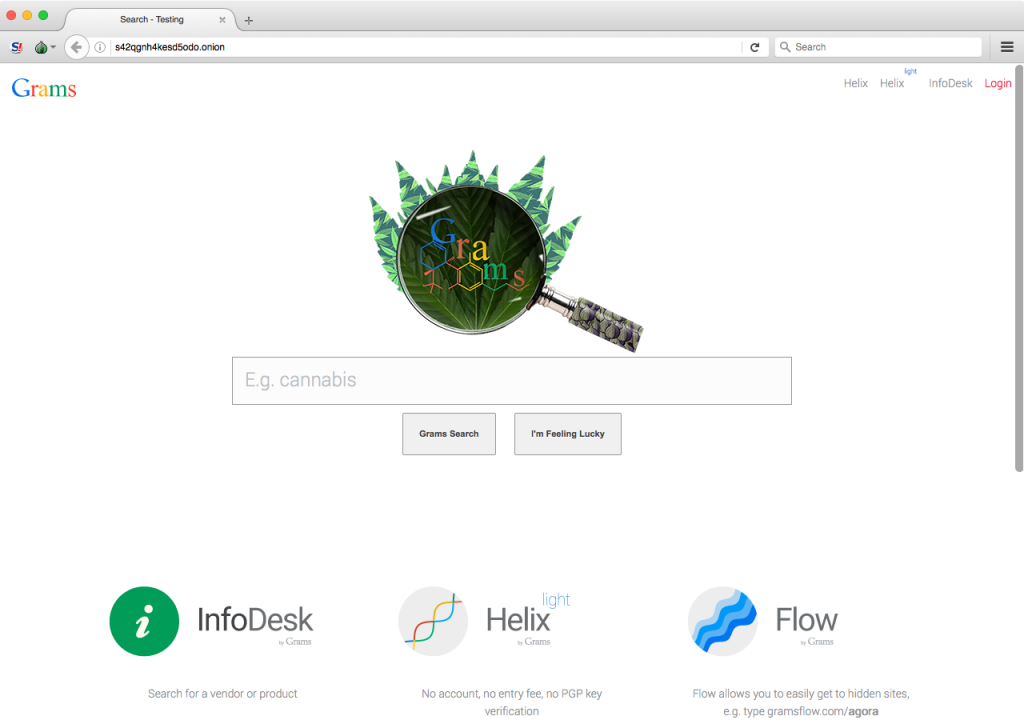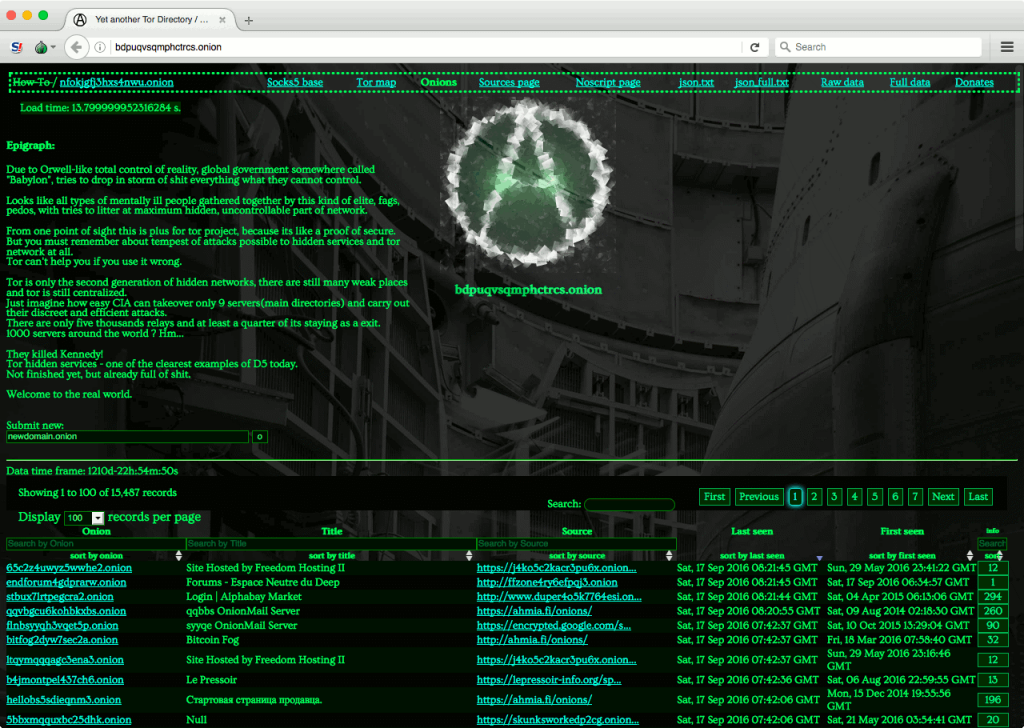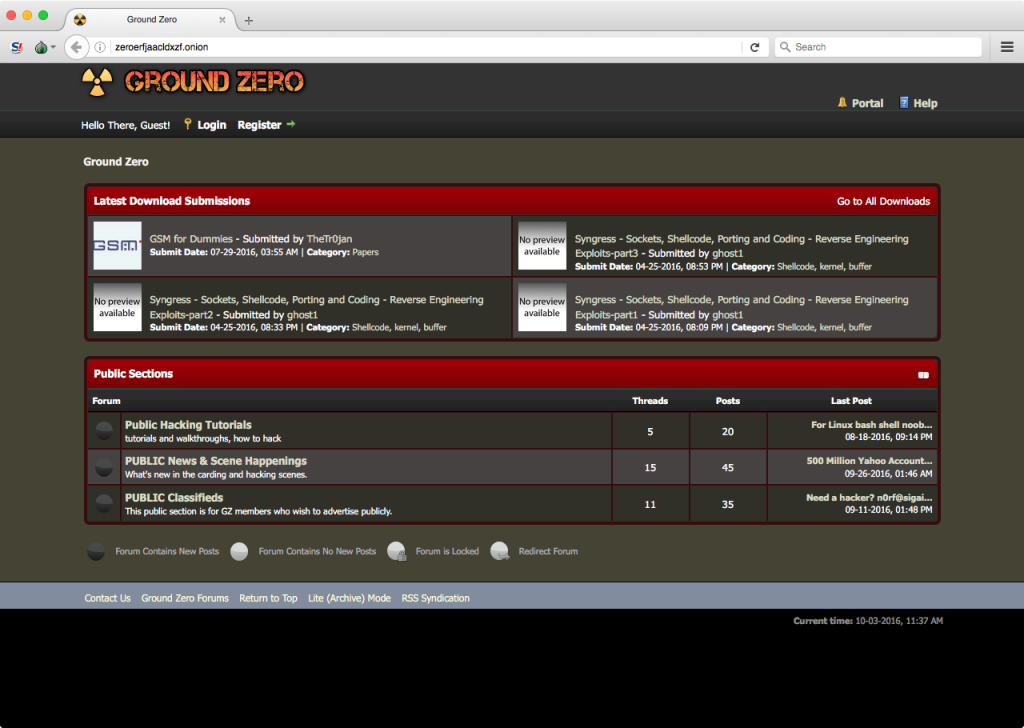Secrets of Darknet. Looking for useful things in Tor hidden services
Search and catalogs
The first thing you want to provide yourself when you find yourself in an alternative version of the Internet is a search engine. There seems to be no problem: there are Torch, Grams, not Evil, Fess, Candle, Ahima and maybe a couple more less well-known attempts to repeat the success of Google in darkweb.
We will not undertake to compare search engines, objectively assessing the quality of the results: this requires tricky metrics and techniques that we do not have. According to purely subjective sensations, Grams has seriously spammed results, and not Evil and Torch weakly sort the results: upstairs instead of large sites there may be completely random garbage. This is not always a drawback (garbage can also be interesting), but Fess seemed to be the most pleasant in the end.

But in the case of darkwebs, Google-style searches are far from the same cool and versatile solution as on the regular Internet. Firstly, the most interesting is hidden in the forums, which often require authorization, and search engines are out of work. Secondly, the resources as a whole are so few that the search loses all meaning: for different requests you will meet the same sites plus a variety of garbage that is irrelevant. This is not to mention that in darkwebs, search engines have little chance of tracking user behavior through the counterparts of Google Analytics and AdWords in order to improve the quality of results.

Fake Google looks like real, but much less joy from it.
A solution to the problem on the regular Internet was found before the advent of modern search engines and looks like a catalog of useful links. In a sense, this article is just such a directory, we just selected the most interesting resources alive at the moment, and also, of course, we do not earn on the placement of links.
The situation is different with popular catalogs in darkweb: on the widely known Hidden Wiki a significant part of the links does not open at all, and the prioritization and selection principle raises serious questions for the owners of the resource. There is also Onion URL Repository, OnionDir, Yet another Tor Directory, TorLinks, HD Wiki, Russian “Godnotaba” (by the way, it’s really quite suitable, albeit small) and hundreds of other collections – large and small, supervised and not very, posted both on darkweb and on the normal, bright Internet.
Godotaba. Above hangs an announcement that the reception of links has been suspended due to the activities of a malicious student.

Yet another Tor Directory. The owners seem to emphasize that anarchy is the mother of order.
Closed hacker forums and sites
Hacking topics can be found everywhere, but specialized forums for the most part are not friendly, and even free registration is rare. For example, the entrance to Hell, one of the most famous forums, costs 0.1 BTC (about $ 60). GroundZero, SiphON и BlackHat at first glance, they look open, but suspiciously empty. There is no doubt that all the most interesting is hidden in sections that are not visible to the ordinary visitor.

GroundZero has three pathetic public sections
When registering at most of these forums, they suggest entering an invitation code, and even if you own it, it is not a fact that all branches will be immediately opened to you. There are a lot of public sections on the 0day forum, but you can rest assured that here too the main movement is in sections where you cannot get from the street.
Very little remains in open access. The most popular topic is carding: bays, CVV, counterfeit money, cashing for various payment systems, ways to bypass antifraud, discussing where to get dumps. In general, it will be boring for combat coders with the Carder Planet, but if you are just interested in the topic, you will definitely find out something new: read the FAQ and click on the links for newcomers to whom the community generously shares.
As for the other sections in the public, there is sheer disappointment: the chance to find 0day is generally lower than in clearnet. But you can look into the Accounts and Database Dumps section, sometimes you see familiar words like VK or Rambler.
Of course, hacker groups also have personal websites in darkweb. As an example, you can see CyberGuerrilla, The Hack Lair, Hacker4Hire и Hackmasters, but honestly, there’s nothing special to do there. Only the “Anonymous International” exchange stands out, where you can take part in tenders at which the contents of the accounts of Russian officials are being played.
Dead Drop — service for transmitting encrypted messages. To register, you need a PGP key, it will also help to leave a message without an addressee. Those who wish to read it will be able to enter your public key for this, and the service will issue a text.
Deep Web Radio. Given that there is no particular tension with music on the “clean web”, the existence of an underground radio station is not easy to justify. But, nevertheless, it exists. You can listen to one of the five “ethers” and enjoy doing it through Tor.
Radio from the depths
Bitcoin Block Explorer, mirror Blockchain.info — site that helps you track Bitcoin transactions.
Keybase — Keybase.io mirror. It allows you to associate your PGP public keys with a user profile. Registering doesn’t hurt, but remember that Keybase is famous for its long virtual queue, which must be defended before an invitation is sent.
Cryptome — mirror of the legendary site about privacy and cryptography Cryptome.org. The last time it was synchronized in 2013, but while the main site has not gone anywhere, it makes sense to use the hidden service in doubt instead.
Summarize
Of course, taking and viewing the whole darkweb is impossible. First of all, because two thousand links are still two thousand links, and viewing them all is not easy (and it’s not necessary). You probably caught the general idea, and we hope that we answered the questions “what to see?” And “where to start?”.
The second, even more important point – “dark” in the word “darknet” still implies that the sites are hidden from strangers and it is impossible to get to them. No indexing will save, and here we need an individual approach.
In general, the open part of darkweb is so reminiscent of the Internet of the nineties with its characteristic anti-design and general disorder that nostalgia spreads directly. The main differences: sites in Onion are much smaller and they are much more criminal. But here you can, as in the good old days, engage in network surfing and feel how the wind of freedom is blowing from all sides!